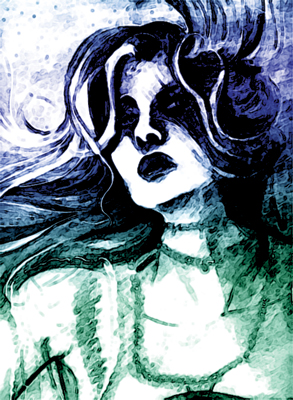All Nonfiction
- Bullying
- Books
- Academic
- Author Interviews
- Celebrity interviews
- College Articles
- College Essays
- Educator of the Year
- Heroes
- Interviews
- Memoir
- Personal Experience
- Sports
- Travel & Culture
All Opinions
- Bullying
- Current Events / Politics
- Discrimination
- Drugs / Alcohol / Smoking
- Entertainment / Celebrities
- Environment
- Love / Relationships
- Movies / Music / TV
- Pop Culture / Trends
- School / College
- Social Issues / Civics
- Spirituality / Religion
- Sports / Hobbies
All Hot Topics
- Bullying
- Community Service
- Environment
- Health
- Letters to the Editor
- Pride & Prejudice
- What Matters
- Back
Summer Guide
- Program Links
- Program Reviews
- Back
College Guide
- College Links
- College Reviews
- College Essays
- College Articles
- Back
Bad Feminist: Essays by Roxane Gay
This is a collection of essays about being a “bad feminist” by cultural critic Roxane Gay. Other than its lack of innovation in analyzing social issues I consider clichés, the writing itself was pleasant to read and enlightening in the areas I’d been undereducated in. I’ve been inspired by her first and last sections (Me and Back to Me) to view the term “feminism” in a new light. Prior to reading these essays, I’d considered it to be an honorable title that nonetheless causes tension in conversations (especially with middle-aged men whose stance on these gender issues seem undecided), but now I see it as less of a title and more of a label. In the fight for gender equality, we should be shedding ourselves of stereotypical labels, yet there I was, eagerly replacing all of my old labels for a new one that read “feminist”. Of course supporting feminism is a source of pride, but not the prejudice and unsubstantiated stereotyping that follows. We should admit that a great number of people (who happen to be the same group undermining feminism, consisted mainly of male chauvinism advocators) think feminists are man-hating and ultra-independent women with no femininity. While “feminism” is actually widely accepted as the belief in gender equality, the existence of this stereotype harms this cause and creates a monstrous barrier between our status quo and the broken glass ceiling. So being a bad feminist, like Roxane Gay suggests in her essays, might be the key to easing the hostility between contending camps.
But the downside of this essay collection has over-shined its inspiring message. Most of the essay topics weren’t directly related to gender issues, which made the already uninteresting views seem more muddled and out of place. According to Roxane Gay, these essays were intended to display “what it’s like to move through the world as a woman”, in other words, “humanity and empathy”. I like this idea but judging by the essays themselves, this seems more like an excuse for a weak compilation of cultural critiques. These essays were interesting to read individually, but they have no interconnection that is apparent to me at the moment.

Similar Articles
JOIN THE DISCUSSION
This article has 0 comments.
